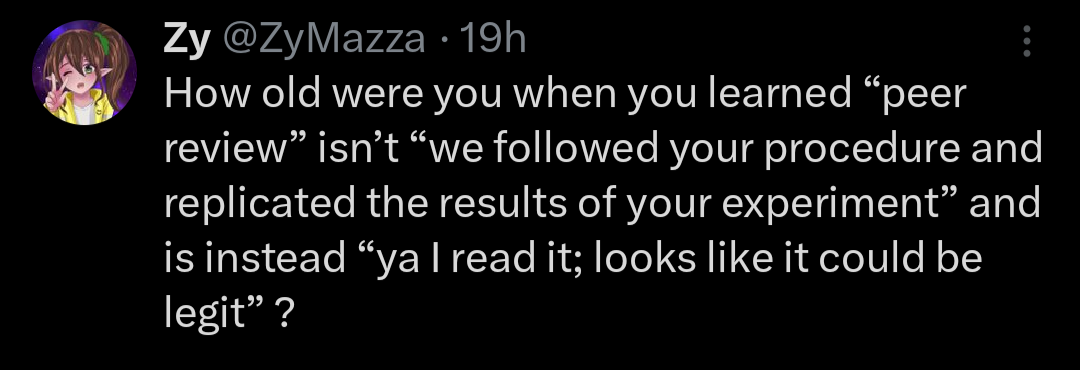This is why I always shake my head and dudebros saying "Naw bro it is/is not peer reviewed, so it's bullshit!"
Even though there are many times when the peer was wrong or outright lying to protect their pre-conceived notion or pet theory... but if you just call that the "Galileo Gambit" you don't have to take that seriously...

